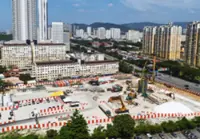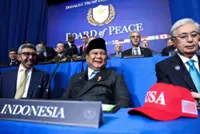SHAH ALAM: The design of the proposed Penang South Islands (PSI), a 1,821ha project next to the Penang International Airport at Bayan Lepas, has been recognised as a sustainable piece of development when it comes to minimising emissions.
The Malaysian Green Technology and Climate Change Corp (MGTC) has honoured Penang for its design as part of its drive to promote Low Carbon Cities (LCCs) in Malaysia, with the state given the “Diamond” award for PSI’s design at the Low Carbon City 2022 event.





